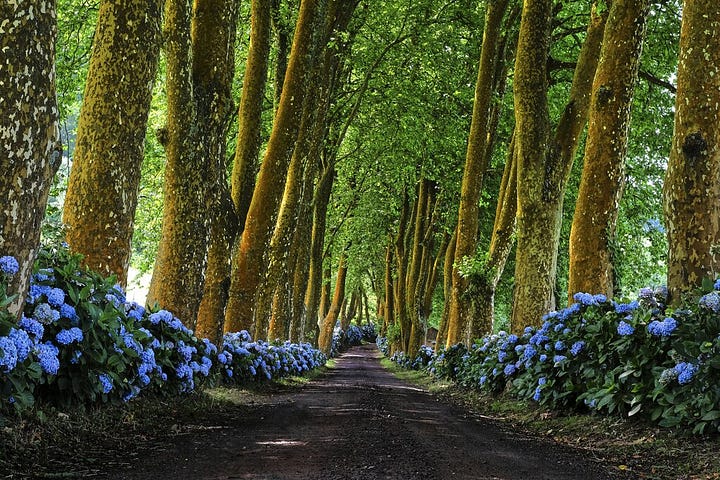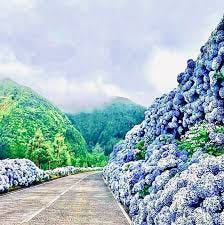Every June, Canada celebrates Portuguese Heritage Month, a time to honour the rich contributions of the Portuguese community to our nation’s cultural fabric. It is a month to reflect on the resilience, faith, and enduring spirit of Portuguese Canadians who, like my own family, emigrated seeking a better life while preserving a deep connection to their homeland. Yet, despite its importance, I often find myself wondering if the message of Portuguese Heritage Month isn’t being lost or recognized in the same way as other cultural events.
As a writer, I’ve always felt a quiet frustration with this oversight. The vibrant stories, the songs, the faith, and the struggles of our community seem to fade into the background, overshadowed by larger narratives. But in a way, this lack of spotlight says as much about me and my community as anything. It speaks to our humility, our quiet perseverance in the face of challenges, and perhaps our tendency to let our actions, rather than our presence, speak for us. So I write, my attempt to ensure my voice is heard in the stories I tell and the worlds I touch through my writing. And part of that “connection” is to a place and people I barely know.
The island of São Miguel in the Azores, where my parents were born, has always lived in the heart of my writing. I often weave the island’s essence—its songs, stories, and deep faith—into the fabric of my narratives, which are mostly set in Toronto. Let’s call it a cultural straddling of two worlds. It is an emotional tapestry, rich with the subtle, unspoken ties that connect generations to one another and to the land they once called home. I try to capture what I feel but cannot always articulate: the lyrical, almost mystical link between myself and this remote corner of the world, a connection that persists, despite the miles and years that separate me from it.
My parents were some of the first and among the many Azorean immigrants who left their homeland in search of a better life in Canada. Like many, they carried with them not only their dreams but the weight of their heritage. The faith of their ancestors, the melodies of traditional songs, and the aroma of home-cooked meals made in kitchens filled with the warmth of love and loss—they brought all these with them, and they tried to pass them on to me and my sister. My mother, in particular, always spoke with great reverence for São Miguel, though the distance between us and the island often felt vast. My father was a very different story. For him, it was best to leave the past behind. Only then can you look forward.
It was never a place I truly understood until I stood there myself. I had grown up hearing stories of the island from my parents and relatives and especially my grandmother—tales of simple lives, of fields of green and windswept cliffs, of family gatherings that blended laughter and tears. These stories were alive with the heartbeat of the island. They were both joyous and mournful, and they formed the lens through which I saw my heritage. They shaped me. Even when I didn’t want them to, they did so silently, like the ebb and flow of the tides that kissed the black sand shores of São Miguel.
As a writer, I am drawn to the lyrical, to the poetic rhythms of language. When I write, I want my words to carry the weight of history, the resonance of a place, the reverberation of voices that have long since faded into the past but whose echoes linger in the present. São Miguel, for me, is not merely a physical location; it is a sound, a memory, a rhythm. It is the cadence of my ancestors' voices, the hush of my father’s breath as he spoke of the island he left behind, and the music of our shared faith, which transcended time and distance.
I often wonder about the strength it must have taken for my parents and their generation to leave the Azores. The island, with its rolling hills, Its roads lined with hydrangeas tall as weeds, its jagged coastline, the place some have coined the Hawaii of Europe, its rains and its sun . . . well, it’s not just a place—they were leaving the very fabric of their lives. It was a decision made in hope, but also in sorrow. The loss of that place, the loss of connection to the land that had cradled them, must have been as much a grief as it was a necessity. And poverty for many suggested it was just that—a necessity. Yet, they carried it with them, deep in their hearts.


When I think about my own connection to São Miguel, I realize that it is not just an ancestral tie, but an emotional one. Even though I grew up far from the island, I felt the tug of it as though it were my own birthplace. I was shaped by the stories of my parents and relatives, by the songs they sang, by the meals they prepared—meals that were, in many ways, a translation of the land itself. The food was simple but rich, just as the island was—brought to life in stews and soups, fresh fish and cheese, all imbued with the memories of a distant home. It wasn’t until I turned 21 that I truly understood the depth of this connection. After my father’s death, I found myself boarding a plane to São Miguel with my mother. We had gone to sell the land that my family had owned, to settle things. The trip was intended to help close the chapter on my father’s life, to take care of the legal and personal matters left in the wake of his passing. It was practical, but also heartbreaking. The island, which had once been a symbol of the past, of connection and home, was now a place I was being forced to sever ties with, to break away from the land of my ancestors for the final time.
As the plane descended into Ponta Delgada, the capital of São Miguel, the island appeared below me like an ancient, sleeping giant, its misty peaks rising out of the ocean. It was a landscape I had only ever known through stories. Who knew that I would feel such a strong connection to that place, that invisible thread, pulled tight in my chest, and for the first time, I truly felt the weight of my heritage in a way I had never experienced before. I tried to reconcile the place with the memories I had inherited. It was as if I had been transported into one of the countless stories I had heard growing up—a story that was no longer just my parents’ but now also my own. My family’s connection to São Miguel was now much more than a speck on a map floating in the middle of the Atlantic; it was an intangible thread that stretched across generations, reaching out to me even as I stood there, preparing to sever the final physical link to the island.
In the days that followed, as my mother navigated the frustrating and almost ridiculous process of selling the land, I visited the places my family had known. I saw the small house where my father had spent his early years, the fields where my grandparents had worked. I walked the streets of the towns they had left behind, and I felt the presence of their ghosts. The landscape spoke to me—not in words, but in whispers, in the rhythm of the wind and the scent of the earth. São Miguel, in all its beauty and isolation, remained a part of me, no matter where I went or what I did. Even as my mother sold my father’s land and began to move forward with our lives in Canada, the island continued to resonate within me. It was as if a piece of my soul remained there, tethered by that invisible thread, which no legal document or physical transaction could sever.
The finality of that journey—of breaking ties with a place that had been both home and myth—was difficult to bear. But in a way, it was also a beginning. I had crossed into a new chapter of my life, one where I was no longer bound by the weight of my father’s legacy or the responsibilities of carrying on a past that I could not return to. And yet, the connection, had not frayed. It was, and still is, alive in the way I write, the way I remember. As much as I want to sometimes veer away from writing about the people and places I understand intimately, I get pulled into it—to my grandparents, to my parents, to my aunts and uncles, who carried the island’s spirit with them wherever they went. It is a tribute to their strength, their faith, and their ability to maintain a link to a place they had left behind.
It is a part of who I am.






Your words are poetry in this piece filled with love and sorrow yet somehow imbued with hope. I know nothing of the Azores but your writing has stirred a desire in me to someday visit and experience this magical place that feeds your soul.
Gorgeously written and gave me all the warm and fuzzies. I am loving all these pieces, Anthony. I would love to go to the Azores and this makes me want to go now!